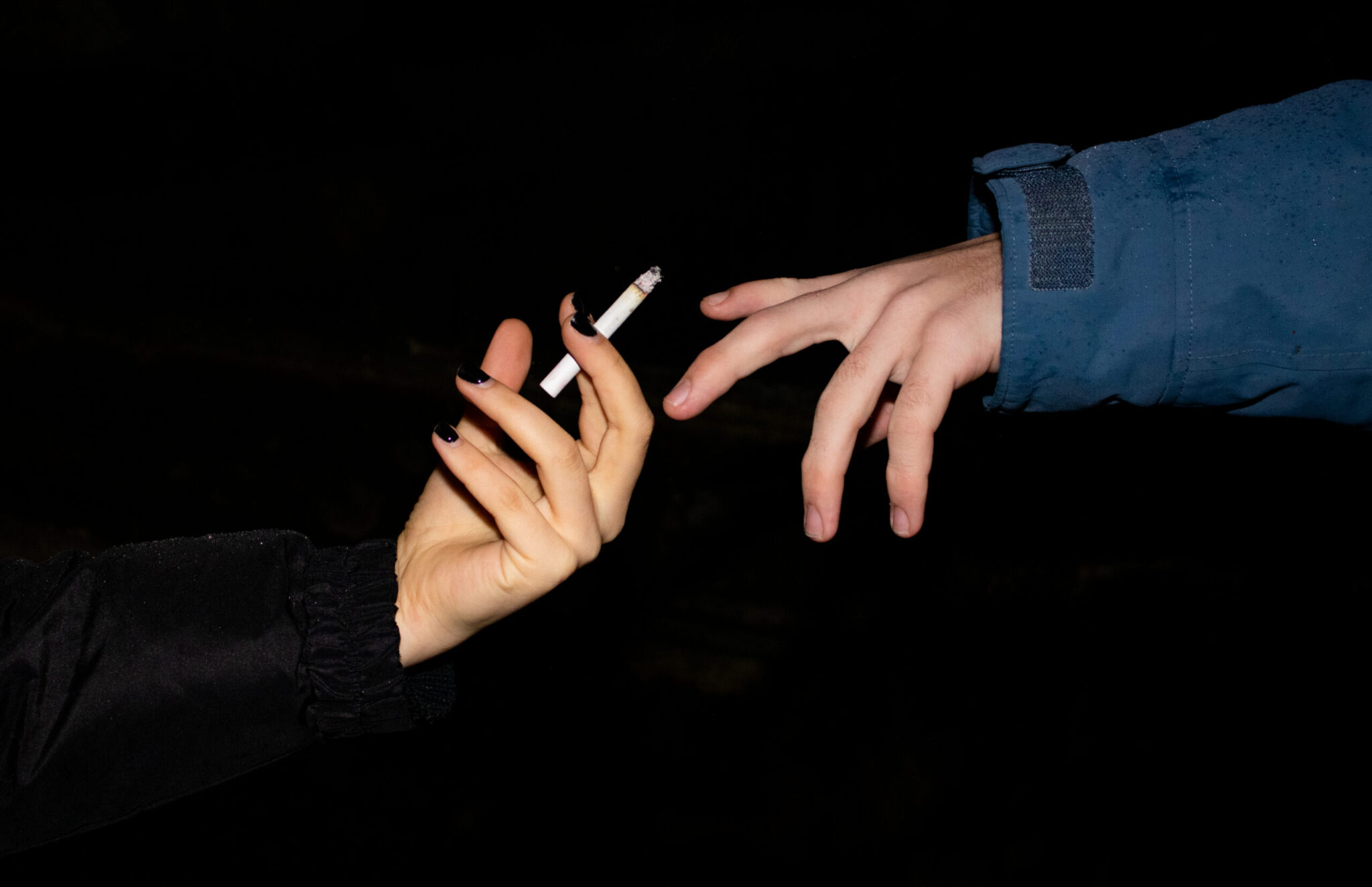
Smoking kills. This fact is no myth to the marvels of modern science and medicine. Why, then, at a place such as Yale, whose students appreciate the value and application of such scientific knowledge, has smoking cigarettes made a resounding return?
Is it a plot by Big Tobacco? (Probably not. Cigarette companies are, famously, champions of public health). Is it the unmet oral needs of infantile bulldogs in a crucial stage of psychosexual development? (I took AP Psychology in high school, no big deal.) Is it a valiant last stand against the Francophile cultural Marxists that plague this culturally capitalist university? The answer will inevitably disappoint you.
Equipped with a pack of a cowboy killers, an “I <3 New York” lighter that I bought for my mom, and the brute force of journalistic method, I set out to crack the cigarette question once and for all. I undertook what might have been the most important assignment of my career as a journalist, risking life and lung as I reluctantly smoked countless cigarettes, all the while remaining stone cold sober. Because many interview subjects felt that their moms would be disappointed in them if they, for some absurd reason, read this article, anonymity of the highest degree has been granted. Thus, the names and personal information featured in this article have been altered to protect students from a firestorm of matriarchal passive aggression.
One need not look too hard to find a cigarette on campus. Your best bet is to buy a pack for yourself by taking a hop, skip, and a jump down to the convenience store questionably called “Murder Mart,” (which is okay actually because it’s comical classism and New Haven fear-mongering as opposed the more serious varieties of classism and fear mongering that abound at Yale. Your second best bet is to go to a party. The vast majority of my super extensive and unbiased research was conducted at Edon and the Fence Club, primarily because I’m just not like other guys and vastly prefer the atmosphere of social clubs to that of frats.
A pattern developed across my conversations with Yale’s carbon clique. When the question of how one comes to smoke cigarettes was posed, one answer rose above the rest: “I definitely just have a nicotine addiction,” was what Yale College student Jimmy Shoeshine had to say. Like most of his peers, Shoeshine felt that a culture of nicotine consumption via electronic cigarettes was popularized in his teenage years due to the glacial pace of research and regulation regarding vaporized nicotine delivery systems. The early popularity of these devices was largely attributed to their blatant advertising towards minors, with flavors such as cotton candy, banana split, and gummy bear. Early access to nicotine that smelled like candy created a generation of teens and early twenty-somethings far more willing to smoke cigarettes, especially when drunk and disinhibited at a party. The powers that be, however, have dissuaded me from pursuing this line of investigative journalism any further because it is too, “sad,” and “serious,” and, “negatively impacts the interests of important donors.
And in all honesty, I couldn’t agree more with the powers that be. I am tired of news being so serious and fact-driven. We need more funny haha material, more feel-good journalism as a respite from the soul crushing tedium and disappointment of everyday life. In the interests of good vibes, dear reader, I have assembled some other, equally convincing explanations for the cigarette culture on Yale’s campus.
One student, who requested emphatically that her pseudonym be Cheech, told the News, “I smoke to spite the French.” Cheech went on to tell the news a compelling story about the time that she once sat at a café in France, utterly famished and in the mood for some French lunchtime cuisine. To her chagrin, the waiter could not help but notice her Americanness and in utter disdain asked if she wanted a Caesar salad. To spite the waiter and prove her knowledge of French lunchtime cuisine, Cheech ordered Pâté, which for those fortunate enough not to know, is a reviling conglomeration of meat and fat that the French force themselves to eat and pretend is delectable in the interest of cultural superiority. Cheech, who despises Pâté, ate every last morsel of it as an act of resistance against her snide French waiter. A cigarette, to her, is much like Pâté. “I choke it down to spite the French,” she said. Cheech added: “I also definitely have a nicotine addiction.
For those who do not smoke to stick it to baguette-wielders looking down their noses at Americans, there is, perhaps, another explanation–the psychosexual approach. Believe it or not, this approach can be used for more than explaining why every male author you have ever read wants to have sex with his mom. “I have an oral fixation,” Oedipus Rex, a drunk cigarette enthusiast, volunteered (almost too eagerly) in an interview. Before I could ask further questions, however, I felt the need to escape in fear that he might finish the cigarette and start sucking my thumb. (He had been eyeing throughout the interview).
Okay, smoking kills. So what? Who are we to step in, to disrupt the spread of patriotism, to prevent the liberation of one’s sexual libido, or to fight any other number of obscure reasons for smoking? So, next time you pass by a smoker, instead of thinking about how cool and aloof they look, or about the long-term health effects of cigarettes, consider the private war they are waging—the cause they are willing to die for by smoking. And the next time you light a cigarette, light it in honor of these individuals, who march through clouds of gray smoke not as addicts, but as heroes.







